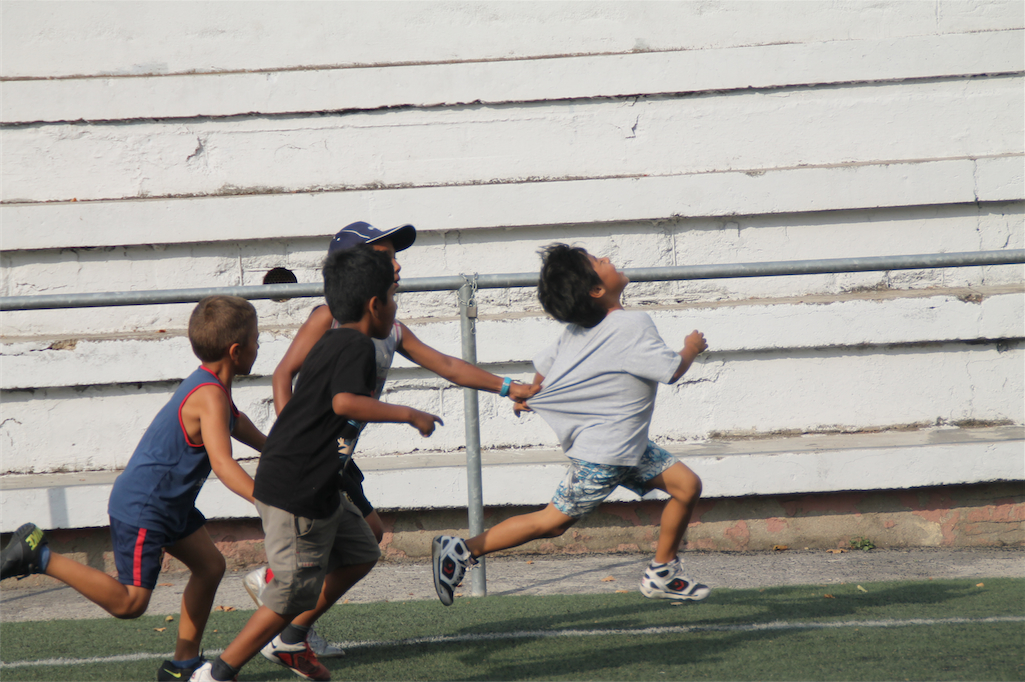Derechos de los menores irrenunciables en un contexto de crisis
Derechos de los menores irrenunciables en un contexto de crisis
9 de setembre 2014
El 3 de julio la Plataforma d'Infància de Catalunya, el Departament de Benestar Social i Família de la Generalitat y Unicef de Catalunya organizaron la jornada "El 25è aniversari de la Convenció sobre els drets de l'infant. Reptes per a Catalunya i avaluació d'impacte en la infància".
Cabe recordar que la Convención sobre los Derechos del Niño surgió ahora hace 25 años con el objetivo de definir el carácter de determinados derechos que se habían de dar absolutamente por descontado en el contexto de las sociedades occidentales desarrolladas.
Desgraciadamente, y hasta hace poco, la irrupción de la crisis ha puesto en duda muchos de estos derechos básicos. Todo esto obliga a preguntarse cuáles son las líneas rojas que no se pueden traspasar en relación a los derechos y la infancia.
Desgraciadamente, la garantía del derecho a la nutrición de los menores ha entrado en crisis y, como consecuencia directa de este derecho primordial, han ido menguando derechos como la salud y la garantía del ocio educativo y las salidas escolares de los menores que tanto los benefician a la hora de desarrollar un entorno proclive a fomentar las relaciones sociales.
A título de ejemplo, a finales de este mes de junio, el informe "Crisis económica i salud", elaborado por la Sociedad Española de Salud Pública y Administración Sanitaria (Sespas), advertía que los niños más afectados por la crisis tendrán, en un futuro, problemas de salud como patologías cardiovasculares y diabetes, y otras como demencia y depresiones, además de aumentar el riesgo de tener un menor nivel educativo y, en consecuencia, peores lugares de trabajo y menos ingresos.
El Síndic de Greuges de Catalunya también publicaba este mes de junio l'Informe sobre el dret al lleure educatiu i a les sortides i colònies escolars, en el que se recoge que aproximadamente uno de cada tres menores no realiza ninguna actividad extraescolar deportiva y que dos de cada tres no realizan ninguna actividad extraescolar no deportiva. Esta falta de participación está condicionada, en gran parte, por factores de desigualdad.
Concretamente, el 83,5% de los hijos de directivos participa en actividades deportivas, mientras que en el caso de hijos de trabajadores no cualificados la proporción es de un 50%; igualmente, el 57,1% de los hijos de directivos participa en actividades extraescolares culturales y académicas, mientras que sólo lo hace el 21,4% de los hijos de los trabajadores no cualificados.
En la misma línea, en 2013, l'Informe sobre la malnutrició infantil a Catalunya recogía también que unos 50.000 menores sufrían privaciones que afectaban a su alimentación (no se pueden permitir carne o pescado como mínimo una vez cada dos días, con lo cual no comen proteínas de manera regular).
Como respuesta a todo este contexto, la Fundación Probitas desarrolla desde 2012 el programa de "Refuerzo de la Alimentación Infantil" (RAI). Un programa propio que tiene como objetivo disminuir el riesgo de malnutrición, así como mejorar el bienestar físico, psíquico y emocional de los menores más vulnerables a través de cuatro ámbitos de actuación: becas comedor, casals d'estiu, hábitos saludables y RAI-Cuida'm (este último dirigido a niños que tienen enfermedades o patologías que no están cubiertas por la Seguridad Social). Estos cuatro ámbitos de actuación cubren tres derechos básicos e irrenunciables que todo menor ha de tener para desarrollarse y crecer con unos mínimos de calidad de vida: nutrición, salud y ocio.
De todos los recursos necesarios para garantizar que los menores accedan a sus derechos, la nutrición emerge como una cuestión primordial. Frente a esto, Probitas ha aumentado este curso escolar la partida de ayudas al comedor escolar pasando de los 419.848 euros destinados al periodo 2012-2013 a los 761.801 euros reservados para 2013-2014. Esto supone un incremento de partida de 341.952 euros más respecto al año pasado solo para atender las necesidades de acceso al comedor del alumnado de infantil y primaria. El número de escuelas y niños beneficiarios de estas ayudas también se ha extendido. El año pasado recibieron las ayudas 1.114 menores, mientras que en la actualidad este número se ha prácticamente duplicado hasta alcanzar los 2.026 niños de 89 escuelas de Catalunya.
La descripción de esta realidad dibuja un escenario que ha traspasado las líneas rojas de los derechos de la infancia. Hay necesidades fundamentales que no están cubiertas por las administraciones públicas. Más allá de si existe desnutrición en Catalunya, hay menores que no tienen la posibilidad de nutrirse con los alimentos que, según la Organización Mundial de la Salud, tendrían que comer para su edad.

